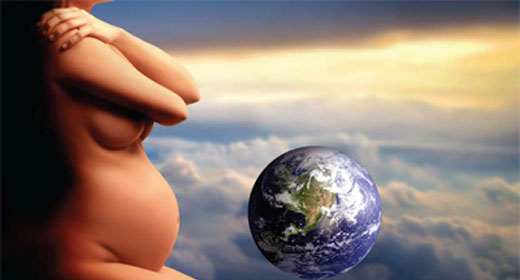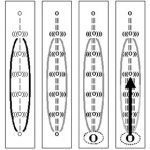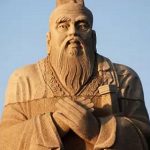by Jaime Leal Anaya: Interconnectedness between human beings is most clearly seen today in the form of modern communications technologies: the internet, social networks, the newest cell phones with the greatest global reception. We are all inevitably connected to each other in this modern age. But is this an outward sign of something much more fundamental in us? Is our contemporary wired technology an extension of a primordial aspect of our innate human by Jaime Leal-Anaya nature? A selection of key events in our history where people struggled and fought to gain greater integration and interconnectedness helps us recognize that this is more than a social phenomenon; this is a defining quality of our humanity.

Looking at some historical events that had a direct effect either strengthening or weakening the bonds that unite people across the globe is one of the easiest ways to recognize how intricately connected we actually are as a species.
The fragile web that unites us together fell clearly victim and under attack in western religious history during the Crusades and so-called Holy Wars. The Gesta Francorum chronicles — “The Deeds of the Franks” — of the Siege of Jerusalem in 1099 during the First Crusade, describe that the slaughter of Muslims and Jews was so great the crusaders waded in blood up to their ankles. And the chronicle of Ibn al-Qalanisi relates how the crusaders burned to the ground the synagogue where Jews were taking refuge, over their heads, while they were singing praises to Christ the Lord outside the building. Our connection got lost here due to apparently pious and innocent yet brutally divisive religious beliefs that failed to recognize our intrinsic unity in the midst of diversity.
The Crusades turned the ugliest under the banner of the Holy Office of the Inquisition, where the exploration of science fell into darkness and was burned alive. Here we need only remember Giordano Bruno and Galileo Galilei as examples. Scientific explorers were not the only ones who suffered. The sanctity, beauty, and right to life of countless unremembered women were particularly tortured and brutally torn to pieces during the Inquisition and the witch hunts it inspired and instigated. Many times throughout history to the present day, religions and conflicts of belief between people have served to divide and destroy our interconnection as human beings rather than build and strengthen it, as one would assume, and the world oftentimes awaits for their leadership and example. The original Holy Wars against the infidel have never stopped. They simply have changed names and direction, and now their effects can be felt closer to home with the explosive conflicts in the Middle East, Iraq, and Afghanistan. Our history of division, conflict, and war painfully show us the fragile nature of our human bonds, and that when we lose sight of these basic ties the consequences are devastating, debilitating, and tragic for everyone in the long run.
Religions and conflicts of belief between people have served to divide and destroy our interconnection as human beings rather than build and strengthen it.
The proponents of the American Declaration of Independence and the French Revolution began to catch a glimpse of the essential values that define us as equal members of a greater whole, and were willing to live and die to defend these ideals. They provided a clear lens to view our interconnectedness in their declarations and ideas of equality, liberty, fraternity — and sisterhood — the right to life, and the pursuit of happiness. These ideals are still an effective foundation for many groups fighting for these inalienable rights today. Our predecessors fought to establish that we are all a unity of equal and free individuals by nature — by the mere fact we are human beings — and not through a divine ordinance or membership to a club, religion, or a specific ethnicity. In a way they redefined those traditionally divine gifts and made them innately human. Implicitly, woman and man were now seen as divine by nature of being human! Those were the heroes who saw the values that make us one people and laid the first stones on this road, yet the fight still rages on.
Liberty and equality has not reached to include all races and genders, and minority groups continue to be marginalized because they are considered different from the rest. We only have to remember the civil rights movement and the work of such giants as Martin Luther King, Jr and Rosa Parks, a man and a woman with a vision. Even though the Bill of Rights had already laid the groundwork that defined human beings as equal parts of a greater whole, it took the victory call of freedom fighters many years later to reminds us we are not different but one in our core. Even all the way up to our modern times, the plight of women of all races, African Americans, the Native American tribes, immigrants of many cultures, and same-sex couples makes us realize that the fundamental interconnectedness with each other has had a challenging history. At the same time, it reveals to us the importance to remember, defend, and continue such a march until it reaches all corners of the land and the minds and hearts of people everywhere.
Our predecessors fought to establish that we are all a unity of equal and free individuals by nature — by the mere fact we are human beings.
The apparent inability to recognize and align with the interconnected web between all living things has also affected the balance of nature and our planet. Historically, there has been much debate for and against climate change from scientific groups, political interests, and religious faiths. Maybe one of the most significant developments in this heated debate that illustrates the core attitude toward climate change in many people was the emergence of Green Christianity. This movement came into contrast with the more traditional Christian views and, significantly at the time, President G. W. Bush’s Christian support groups. Christianity’s approach to the issue of humanity’s impact on the welfare of nature seems to stem from a very basic interpretation of the Bible, specifically the first verses of the book of Genesis. The traditional interpretation views humanity in terms of ownership over the earth and its fruits, which has often led them to support the exploitation of natural resources without much concern for environmental impact.
The recent emergence of Green Christianity, in contrast, changed its views from “ownership” to “stewardship” of the earth. This change of perspective — though still wanting greater integration of the human within nature itself — is very significant for it recognizes climate change as a reality that must be addressed and includes a significant call to action to preserve and protect the earth. The notable scholar and theologian, Sallie McFague, a highly respected speaker at Harvard School of Divinity, illustrates this new trend and call to action in her book, A New Climate for Theology: God, the World, and Global Warming.
The effects of human activity on the balance of Mother Nature are clearly evident when we look at global issues such as the food crisis and diminishing clean water supply. The problem is becoming more and more critical for sustaining life in many places, including our own. This event of history now being written in our very lifetimes shows us we are not isolated from each other and nature but are rather intimately dependent on each other for survival. It is undeniable — we are certainly part of nature’s living web. Our western disconnect from each other and nature has manifested at another level, beyond war, discrimination, and abuse. It has manifested today through environmental crises that threaten our sustainability, forcing us to reconcile that old lurking disconnect.
Chief Seattle: “All things are connected. Whatever befalls the earth, befalls the sons and daughters of the earth. Man did not weave the web of life; he is merely a strand in it.”
In all of these important events from our history we have reviewed, including the one about climate change still in the makings, we can clearly see the underlying thread that connects us all, its importance, fragility, and real tangibility when we look at them in retrospect.
Interconnectedness is a key ingredient of being human. The traditional wisdom and teachings of the ancients have always been on the right track: As Chief Seattle reportedly said in his famous speech, adapted by Ted Perry, “All things are connected. Whatever befalls the earth, befalls the sons and daughters of the earth. Man did not weave the web of life; he is merely a strand in it. Whatever he does to the web, he does to himself.”
Broadening the scope of our view to incorporate the concept of interconnectedness as part of our human identity and nature does bring about a long-awaited look at ourselves that allows a new perspective and outlook for our world. Nature is in continuous flux and evolution and so are we, as we can see through our history. A new landscape and call to action begins to take form before us when we explore the intricate part we all inevitably play in the world and with each other in the Spirit of Chief Seattle’s famous words.
Much through our history, finding the nodes in this invisible yet real web is what made us human at a deeper more meaningful level, one worth remembering. Becoming aware of its reality and significance may well be an important key that safeguards our survival as a species on this fragile planet and what makes possible the birth of our future generation.
Is our contemporary wired technology an extension of a primordial aspect of our human nature?




















































